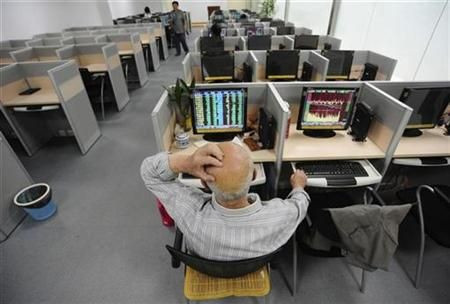Asian Markets Rise On Upbeat US Data

Asian markets rose Thursday as investor sentiment was lifted with the encouraging report on the rise of the new homes sales in the U.S., in an indication that the world’s largest economy is regaining the growth momentum.
Japan's Nikkei Stock Average was up 0.60 percent or 53.58 points to 9007.88. Among the major gainers were KDDI Corp (5.13 percent), JFE Holdings Inc (3.80 percent) and Kobe Steel Ltd (2.99 percent).
China’s Shanghai Composite rose 0.46 percent or 9.80 points to 2125.79. Hong Kong's Hang Seng marginally rose 0.04 percent or 9.48 points to 21773.26. Among the major gainers were Sands China Ltd (2.79 percent) and CNOOC Ltd (1.62 percent).
South Korea’s KOSPI Composite Index was marginally up 0.03 percent or 0.51 points to 1914.47. Shares of Samsung Electronics Co Ltd rose 0.23 percent and those of Hyundai Motor Co declined 1.38 percent.
India's BSE Sensex marginally rose 0.08 percent or 15.63 points to 18725.65. Among the major gainers were Sesa Goa (1.41 percent), Dabur India (1.28 percent) and ONGC (1.05 percent).
Market confidence went up after the U.S. Census Bureau’s new home sales data reported Wednesday showed upswing in house purchases. The data, which measures the annualized number of new single-family homes that were sold during the previous month, rose to 389,000 in September up from 373,000 in August.
“New home sales were last higher in early-2010, when sales volumes were being supported by various homebuyer tax credits. The current upturn, which is not built on temporary factors but rather on the fundamentals of favorable valuations and low interest rates, looks much more sustainable,” Paul Diggle, an economist at Capital Economics, said.
At the Federal Open Market Committee (FOMC) meeting, which concluded Thursday, the U.S. Federal Reserve stressed that it would continue with its asset purchase. The Fed added that if the labor market conditions did not improve substantially, then it could, among other options, undertake additional asset purchases.
“We wouldn't be surprised to see the Fed add monthly purchases of $40 billion of Treasury securities, matching the $40 billion of agency mortgage-backed securities it is already buying,” Paul Ashworth, an economist at Capital Economics, said.
© Copyright IBTimes 2025. All rights reserved.





















